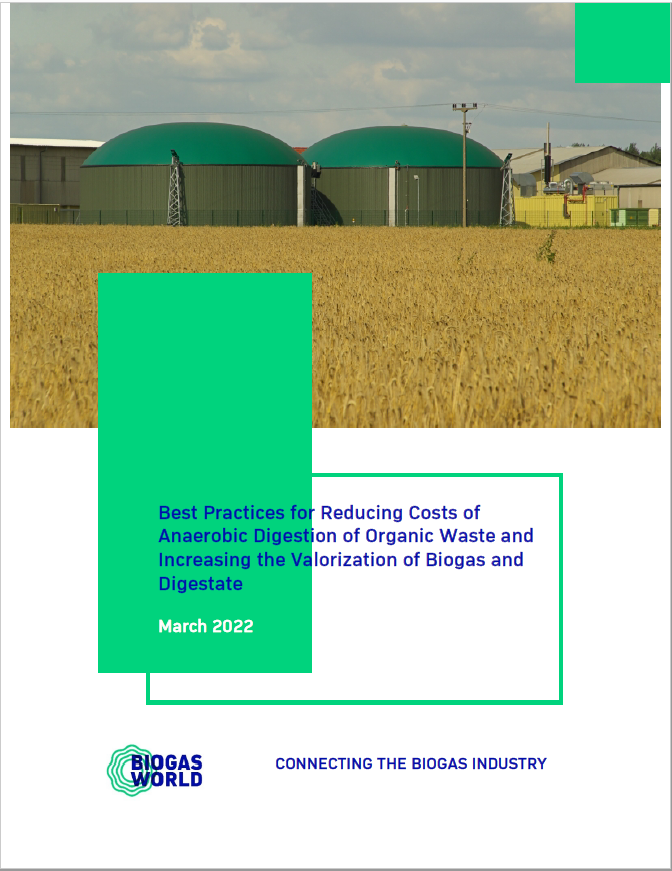BiogasWorld Launches New Report on the Best Practices for Reducing Costs of Anaerobic Digestion of Organic Waste
Quebec City, June 16, 2022 – BiogasWorld has launched a new report, prepared for and funded by Environment and Climate Change Canada (ECCC), on the best practices for reducing costs of anaerobic digestion (AD) of organic waste and increasing the valorisation of biogas and digestate.
The research concentrated on the three most common types of AD systems, namely on-farm digesters, stand-alone digesters that process municipal organic waste and codigestion systems for municipal organic waste treatment at WWTPs.
The data collected through the literature search, analysis of interviews and questionnaire responses of more than 90 biogas and RNG industry stakeholders allowed to list the current industry barriers, highlight the major Canadian particularities that influence CAPEX and OPEX, enumerate best practices that can reduce costs and discuss ways to valorize end products. Additionally, the study highlights opportunities for future research.
Based on the research results, BiogasWorld prepared the list of best practices to reduce the costs and improve the valorization of end products from AD systems. The best practices are categorized by the main actor involved in implementing the best practice to differentiate among three groups of industry stakeholders (e.g., facility, industry associations and other groups and government).
On project level, the main best practices to reduce costs and increase the revenue include:
- Economies of scale – plant sizing
- Use of benchmarking as a tool to reduce costs
- Process optimization through use of efficient equipment, feedstock review to boost biogas production, etc. preventative maintenance and AI
- Use of collective negotiating power and sharing professional resources between plants
On industry level, the best practices to optimize project economics include:
- Equipment/project standardization and creation of local industrial fabrication capabilities
- Involvement of industry associations (consulting services, training, guidelines)
- Long-term agreements with waste haulers or municipalities
On government level, the highlighted best practices to reduce costs and increase revenues are as follows:
- Introduction of biogas/RNG offtake subsidy and use of CI score or GHG emissions reduction
- Establishing a carbon credit market and offset protocols
- Recognition of U.S. or European standards for equipment used in Canada
- Training and education for operators

To download the report, click here.
For more information: Natalia Bourenane, General Manager, BiogasWorld, natalia@biogasworld.com.

